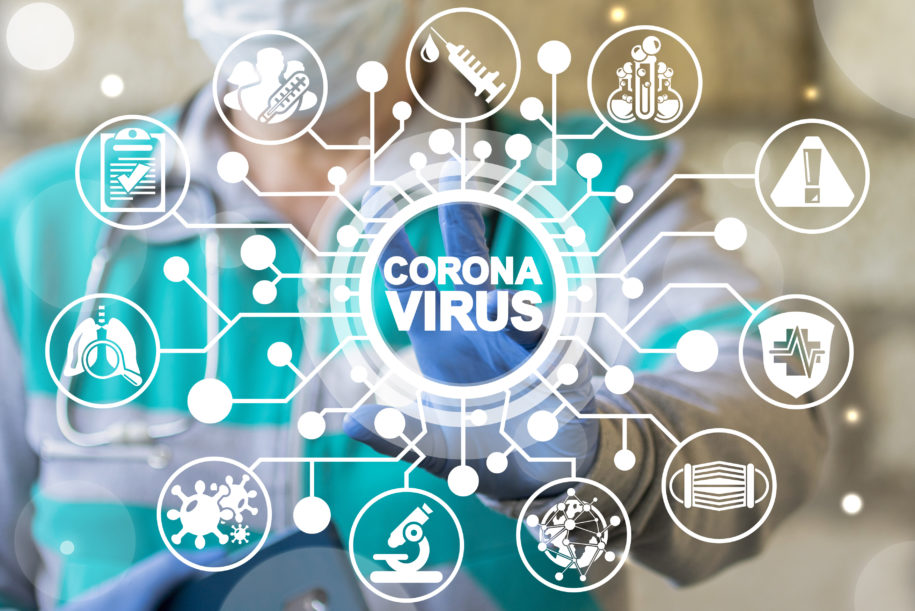Choosing to receive the COVID vaccine is an individual choice and I respect that. The COVID vaccine is experimental—under international laws of informed consent, experimental status must be disclosed as must all potential and yet-to-be determined adverse effects. Meanwhile, the media is pushing everyone to get the vaccine but not providing informed consent.
After 2 months of clinical trials, the COVID vaccine was given Emergency Use Authorization—What does this mean?
- Clinical trials normally run much longer than two weeks. Both the Pfizer and Moderna vaccines were authorized under Emergency Use only—this does NOT mean they were FULLY approved by the FDA. Why? These trials are early in the clinical trial process. Emergency Use Authorization (EUA) means that the clinical trials must continue to the end and may be reversed based on safety and efficacy data. There is more to know.
- For example, in the Pfizer study of 43,000+ individuals, the authors state: “Severe local and systemic adverse reactions (grade ≥3, defined as interfering with daily activity) occurred more commonly in vaccine recipients than in placebo recipients.” (https://www.ncbi.nlm.nih.gov/pmc/articles/PMC7745957/). Commonly, minor vaccine effects include fever, muscle aches, digestive issues, and fatigue.
- In fact, this fairly readable paper also shows that there is no difference in mortality (death rates) between those who received the vaccine and those who didn’t. Another paper published in Morbitity and Mortality Weekly Report. https://www.ncbi.nlm.nih.gov/pmc/articles/PMC7808711/ states that during December 14–23, 2020 (one week), monitoring by the Vaccine Adverse Event Reporting System detected 21 cases of anaphylaxis in the vaccinated group. Individuals who had allergic responses more than a day later were not included in this analysis because the authors decided “anaphylaxis could only be questionably related to the vaccine”.
- The same paper states a “95% reduction in cases of those immunized” but what does that mean? In the Pfizer study, 162 in placebo group ( ~ 0.7 percent of 21,500) tested positive for COVID while only 8 in the vaccine group did in that same timeframe. While “95 percent” might look impressive, if ~0.7 percent are contracting COVID without the vaccine, does this constitute an emergency? https://www.nejm.org/doi/full/10.1056/NEJMoa2034577
- In 2018 (the last year we have verified information from the CDC) https://www.who.int/data/global-health-estimates 17.9 million lives worldwide were lost to cardiovascular disease, 9.6 million to cancer… compared with 1.6 million deaths assigned to COVID, most of whom had cardiovascular and diabetes as well (comorbidities). Also, many were diagnosed based only on symptoms and not a valid COVID test. Over 42 million have recovered as of January 2021, according to John Hopkins University. This is under a 2% death rate. Most pandemics have resulted in orders of magnitudes higher death rates (up to 50%). I do honestly feel awful when a loved one is lost, please don’t get me wrong.
- The CDC describes minor adverse effects as pain where they got the shot, fatigue, headache, chills, fever, and joint and muscle pain. Sounds like the same symptoms of COVID, when minor. As part of participating in the trial, participants had to stay home, wear masks, social distance, and basically do what we’ve all been doing. Definitions: Efficacy is what happens under strictly controlled clinical trial settings with a high level of compliance monitoring; effectiveness is what happens under “real world conditions” e.g. going out to dinner with friends, to the gym, gathering for Holiday’s or Church, etc. We have no idea whether or not the vaccine will protect us or return us to social freedom.
- The COVID vaccine is the first of its kind RNA vaccine that uses nanoparticle technology to get the RNA into your cells. Once inside your cells, the code for the SARS spike protein is inserted into your DNA so your cells begin to produce the spike protein. This is not the complete viral particle but enough of it to kick your immune system in gear, theoretically, to make antibodies that help your immune system recognize and control COVID exposure. We don’t yet know if the vaccine actually creates antibodies, how long any immunity might last without completing the clinical trials over the next year.
Who should not get the vaccine per the CDC?
- The Centers for Disease Control (CDC) is cautioning anyone with allergies to any of the vaccine ingredients to avoid the vaccine (ingredients include eggs, Polyethylene glycol, preservatives…); a table of prior allergies that cause adverse effects that can be found at https://www.ncbi.nlm.nih.gov/pmc/articles/PMC7808711/table/T1/?report=objectonly.
- We do need to understand how appropriate all vaccines are for people who have predispositions for autoimmune disease, allergies, GI disorders, or previously were diagnosed with COVID. We just don’t know as these individuals are currently excluded from clinical trials.
Does vaccination give a false sense of security?
- Yes, you’ll still have to wear a mask and social distance per current guidlines.
- Why? We don’t have enough information to know whether or not the vaccine prevents contracting the disease,
- We don’t know whether the vaccine simply reduces symptoms, in which case you could still contract COVID-19 and spread the disease,
- It may still be possible to contract it and spread COVID if you are exposed—you may remain asymptomatic and never know you are a source,
- Again, we’ll know more by the end of the clinical trials (at least a year away).
If you have COVID antibodies already, do you need to be vaccinated?
- In the clinical trials to date, individuals were excluded if they had COVID previously–no one knows what happens if the vaccine is given to someone who already had COVID and already has developed antibodies. Many questions https://pubmed.ncbi.nlm.nih.gov/32584464/
- If you already have COVID antibodies due to prior exposure, would you need a vaccine or is your immune system already protecting you? Consider an antibody test through LabCorp or Quest (I believe Quest is unavailable to Alaskans)
- If you already have antibodies due to prior exposure, what is the safety, efficacy, or necessity of being vaccinated? No data.
- Could the vaccine now trigger an over-reactive immune system if you already have been exposed to COVID? Or have other immune imbalances?
- Research suggests that if you have had COVID (with or without symptoms) donating your blood may help others develop immunity: https://patient.labcorp.com/covid-19-antibody-test
- There are several labs that offer SARS-COVID antibody testing and you do not need a doctor’s requisition unless you want to send the ($10 – $49) fee to your insurance plan: Long-lasting immunity is “IgG”; the more immediate response type is “IgM”. Currently available tests explore both. https://pubmed.ncbi.nlm.nih.gov/32584464/ None of these tests are FDA approved as they are authorized under Emergency Use Authorization. Remember, there were no reliable SARS-Cov-2 diagnostic tests available for some time. You may have been exposed before nasal and oral tests were available and you may already have immunity. If you already have immunity, do you need further immunization?
- Inside Alaska, LabCorp offers tests through Walmart currently $10
- Outside Alaska, Quest offers a serum IgG test. $119
- Schedule an appointment with Walmart / LabCorp for the blood draw. At https://patient.labcorp.com/covid-19-antibody-test
Reporting adverse vaccine effects is important
OK – you’ve decided to get the vaccine and are not part of any clinical trial. Receiving the vaccine is an individual choice and I respect that. If you feel great, excellent. If not, please report any effects to the hotline for doing so. The CDC encourages reporting these. Again, this is an experimental vaccine and we are still trying to understand the risks and benefits. https://www.cdc.gov/vaccinesafety/ensuringsafety/monitoring/vaers/index.html. For further assistance with reporting to VAERS, call 1-800-822-7967
- If you experience adverse events, you may not sue the vaccine manufacturer: On 4 February 2020, US Secretary of Health and Human Services Alex Azar published a notice of declaration under the Public Readiness and Emergency Preparedness Act for medical countermeasures against COVID‑19 stating “any vaccine, used to treat, diagnose, cure, prevent, or mitigate COVID‑19, or the transmission of SARS-CoV-2” … precludes “liability claims alleging negligence by a manufacturer in creating a vaccine, or negligence by a health care provider in prescribing the wrong dose, absent willful misconduct”. The declaration is effective in the United States through 1 October 2024. Do report your adverse events so they can be known; don’t expect any compensation if the testing was inaccurate or your vaccine caused a problem. Note the date. COVID acknowledgement and shutdowns were announced in March.
Please do report any adverse events of you you choose to receive the vaccine.
Alternate options
I certainly hope you sail through and never have COVID, or never have symptoms. Boosting your immune system is key.
Prevent COVID or other immune imbalances by taking steps here
and here
Please take care of yourselves.
XOXO
Marie


Leave a Reply
You must be logged in to post a comment.